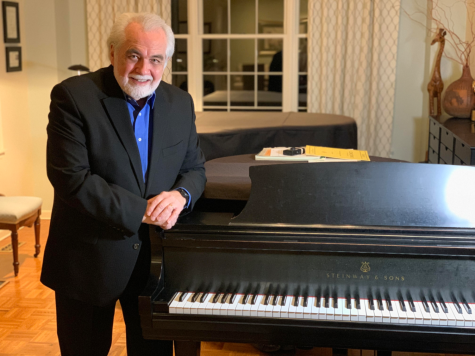Dr. Luke’s Turn to Face the Music

Art credits to Nicole Zhu!
April 20, 2016
On February 19, 2016, Justice Shirley Kornreich ruled against music star Kesha’s request to suspend her contract with producer Dr. Luke while she pursues a suit against him which accuses him of emotionally, physically, and sexually abusing her for years.
The ensuing legal fight between Kesha and Dr. Luke is about more than an artist’s battle to escape a contract with someone she claims has abused and exploited her. It raises the question of whether a contract ought to be maintained even in the case that it limits the safety, happiness, and/or creative freedom of one of its parties.
In October 2014, Kesha sued Dr. Luke, formally accusing him of abuse. This accusation included drugging her, raping her, and exacerbating her bulimia, for which she entered rehabilitation in early 2014. In response to her suit, Dr. Luke counter-sued Kesha for defamation. Approximately a year later, while the lawsuit was ongoing, Kesha filed for a preliminary injunction, which is a court order meant to take effect before a lawsuit is concluded. Specifically, Kesha sought a suspension of her contract with Kemosabe Records, which Dr. Luke owns.
Justice Kornreich ruled against Kesha on the grounds that the contract in question was not only a legally binding document, but also one that was heavily negotiated. In addition, in her comments to Kesha’s lawyers, Kornreich indicated that Kesha had insufficient proof of Dr. Luke’s abuse.
Megan Chiu ’17 does not agree with Judge Kornreich’s ruling, arguing, “In my opinion, the courts should honor Kesha’s request because I think a person’s rights and his or her right to his or her own body at the very least holds higher value than a legal contract. After all, the law is supposed to protect people, not hurt them.”
On one hand, Dr. Luke vehemently denies all claims that he abused Kesha, accusing Kesha and her team of scheming to break the contract so that she can make more money. Sony, which owns Dr. Luke’s Kemosabe Records, has publically stated that while it is unable to impact a contract in which it is not a party, it has offered to allow Kesha to work with producers other than Dr. Luke.
From Kesha’s perspective, she has endured years of abuse at the hands of someone more valued by her record company than she is. Kesha has stated that Dr. Luke has exploited her for her voice and stifled her creative input.
It is important to note that Justice Kornreich’s ruling is not the end of the case. After she ruled against Kesha, pictures were released of the emotional and sobbing star; the Internet erupted in what was mostly support for Kesha. Artists such as Adele, Lena Dunham, George Takei, Lady Gaga, and Kelly Clarkson have all voiced their support for Kesha; Taylor Swift also donated $250,000 to financially support the continuation of Kesha’s legal battle.
Kesha’s fans have reacted en masse, starting the #FreeKesha movement and circulating petitions asking Sony to release Kesha from her contract. The uproar against Sony has become so significant that Sony is rumored to be in the midst of negotiating with Dr. Luke for a year-early release from his contract.
Celebrities and fans alike have decried Judge Kornreich’s decision to prioritize corporations and contracts over other matters, such as Kesha’s happiness and freedom to create as an artist.
Michael Hackett ’17 summarizes it best, declaring, “This case shows that corporations blatantly and intentionally disrespect women like Kesha; they have allowed her to be continuously harmed by forcing her to continue working with her abuser, demonstrating that her signature on a contract is somehow more important than the fact she was sexually assaulted.”






